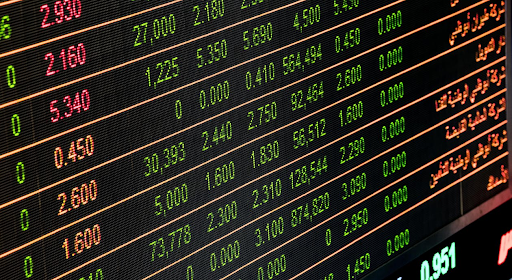Step into a bustling stock exchange and you’re greeted with the hum of voices, flashing numbers, and rapid decisions being made in real time. Walk into a busy casino and you’ll see a remarkably similar scene—bright lights, the buzz of conversation, and players locked in intense concentration. Both environments are high-energy, fast-paced, and driven by the thrill of strategy. While one deals in stocks and the other in cards and chips, the parallels are striking.
The Atmosphere of Adrenaline
On the trading floor, every moment counts. Prices shift in seconds, and traders must act decisively to take advantage of fleeting opportunities. The same is true on the casino floor, where players read the game, anticipate moves, and make calculated bets in real time. Both arenas thrive on energy and focus, keeping participants on their toes from the first move to the final outcome.
Calculated Risks and Quick Thinking
Traders and casino players share a key trait: they know how to take risks without letting emotions control the outcome. In finance, this means analyzing market trends, assessing company performance, and anticipating economic shifts before committing to a trade. In a live casino, it’s about reading the table, calculating odds, and making split-second decisions to maximize winnings while minimizing losses. Neither setting rewards reckless moves; both favor informed strategies executed with confidence.
The Role of Strategy Over Chance
While luck plays a part in both trading and gaming, relying solely on chance is a losing approach. Skilled traders use data, charts, and forecasts to guide their decisions. Similarly, experienced casino players understand probability, game rules, and betting systems to tilt the odds in their favor. In both cases, preparation and knowledge are the real tools of success.
Reading the Room
Market sentiment drives trading just as table dynamics influence casino gameplay. A trader can sense when the market is bullish or bearish, adjusting their strategy accordingly. At the casino, seasoned players pick up on opponents’ behaviors, dealer tendencies, and table rhythms. Understanding the mood and flow of the environment can make the difference between a win and a loss in both worlds.
Embracing the Rush Without Losing Control
Part of the appeal of both settings is the surge of adrenaline that comes with every decision. Closing a profitable trade or hitting a big win feels electric. However, the most successful participants in either arena know how to channel that excitement without letting it cloud their judgment. They set limits, stick to their strategies, and walk away when the time is right.
Risk Management as the Core Principle
Risk management is the lifeline of trading and gaming alike. Traders diversify their portfolios, hedge investments, and keep reserve funds to weather market downturns. Casino players manage their bankrolls, avoid overbetting, and adjust their play based on outcomes. Both understand that the key to longevity is not just winning, but surviving the inevitable losses along the way.
The Technology Connection
Modern trading floors rely on high-speed software, instant data feeds, and algorithmic models to make decisions faster than ever before. Likewise, the casino industry has embraced technology to bring the energy of the gaming floor online. Live dealer games, real-time streaming, and interactive features replicate the casino atmosphere for players at home, offering the same blend of strategy and excitement that traders feel on their screens.
Psychology at Play
Human behavior plays a pivotal role in both environments. Traders can fall victim to fear of missing out, panic selling, or overconfidence—just as casino players might chase losses or bet impulsively after a win. Those who master their emotions, stay objective, and remain disciplined tend to see better results. Mental control, in many cases, is the true differentiator between consistent success and costly mistakes.
The Long Game
In both trading and gaming, thinking long term pays off. A single trade or bet might make headlines, but sustained profitability comes from a series of well-planned decisions over time. The best traders look beyond daily market swings to broader trends, just as skilled casino players focus on steady, strategic play rather than chasing one big win.
Final Thoughts
The trading floor and the casino floor might operate in different industries, but their shared DNA is undeniable. Both are arenas where knowledge, timing, and psychological control can lead to big wins—or soften the blow of inevitable losses. The energy is addictive, the strategies are intricate, and the rewards can be substantial for those who play it smart.
Whether you’re wearing a suit and scanning stock charts or sitting at a card table with chips in hand, the principles remain the same: prepare thoroughly, manage risk, stay disciplined, and know when to step away. In both settings, success doesn’t just come from luck—it comes from the mindset you bring to the game.
